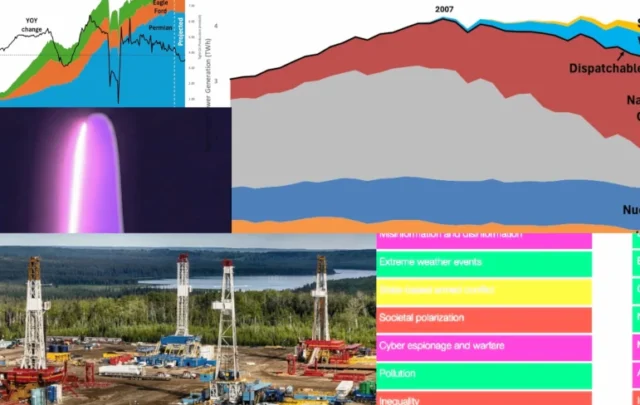
The fretting in the financial markets after Great Britain’s voters narrowly decided to leave the European Union (EU), a move dubbed Brexit, was less about immediate effects–there aren’t any since it would take Britain up to two years to withdraw–and more about a foreboding that other countries will want out, too.
In addition, some think it likely that Scottish independence will once again be on the agenda. Scots were heavily in favor of remaining in the EU.
Centrifugal political forces are bad for business since they spell uncertainty and ultimately disruption if they come to fruition as they did in Britain regarding the EU. And, Britain, of course, isn’t the only country in Europe facing breakaway movements. The people of Spain’s Catalonia region have for some time sought a referendum on independence from Spain. Only last year Catalan separatists won a majority in the regional government. The movement cites cultural and linguistic reasons for independent statehood, reasons that could be asserted by many groups across Europe and lead to more instability.
The larger question is why there is building discontent with global economic and political integration not only in Europe, but also in the United States as evidenced by the candidacies of Donald Trump and Bernie Sanders.
The slim defeat for pro-EU forces has been explained as a vote against EU immigration and business regulation policies and against the loss of national sovereignty. But there is also a feeling afoot that the move toward greater integration through the EU and through global and regional trade agreements is designed primarily to enrich global financial elites–all the while subjecting middle- and lower-class wage earners to stagnant and even falling incomes as they compete against cheap labor in developing countries.
In the conversation about the rising revulsion against further integration, one factor is not being discussed: energy. With oil, natural gas and coal, the world’s primary energy sources, all far below their high prices of the last decade, all would seem well on the energy front.
Britain, of course, had been reaping the benefits of oil and natural gas deposits in its sector of the North Sea since the 1970s. However, after 2005 the country ceased to be a net exporter of crude oil and natural gas liquids. Imports of natural gas have risen steeply with 2014 imports reaching 19 times what they were in 2000. Both these trends point to the decline of the North Sea fields and Britain’s re-entry into the league of oil and gas importers, a sudden reversal of a previous long-term trend and a net negative for the British economy.
As you’ll see below, this trend combined with the effects of high energy prices on productivity growth had a negative effect on the incomes of middle- and lower-class voters who simultaneously paid a higher proportion of their incomes for increased energy bills. This double whammy has likely contributed to discontent among such voters who were looking for a way to express their frustration and found it in the Brexit vote.
Returning to the trends mentioned above, the year 2005 turned out not only to be an inflection point for the North Sea fields, but also for the worldwide oil markets. Prices rose inexorably and spiked in 2008 to their highest ever. After prices dipped to around $35 per barrel in the wake of the financial crash that followed, they rose sharply again regaining $100 by early 2011 and hovered around record average daily prices for more than three and a half years. The high prices were related to rising demand from Asia, but also to a dramatic slowdown in the growth of oil production worldwide.
If the cause of our current economic difficulties was, in part, high oil prices which slowed the world economy, then an energy connection comes into view. Current low oil prices become a symptom of economic weakness rather than merely a reflection of excess supply. (Much of the world outside of North America also experienced high natural gas prices during this period in the form of high landed costs for liquefied natural gas in Japan and Europe, far higher than the U.S. pipeline price during this period.)
Moreover, high energy prices in general can be linked to slower productivity growth. And, we have seen global productivity growth far below the expected trend since 2005, a year that was as noted an inflection point for oil prices. Now, here’s the important part: Productivity growth is the basis for rising wages. With declining productivity growth employers are less likely to raise wages as those raises would eat into profitability.
There are other reasons why wage earners may not be receiving wage increases, but lack of productivity growth is an important one.
So, here’s what all this had to do with the Brexit vote: Stagnant or declining living standards breed discontent among a populace used to rising standards. Pro free trade and economic integration forces argue that such integration into larger trading federations leads to greater prosperity. When the prosperity disappeared as it did in Ireland, Spain and Greece, significant political movements arose in the latter two (Podemos in Spain and Syriza in Greece) which question further integration and suggest at least substantial alteration of the terms of EU membership. The effect on British wage earners was more subtle, but found its expression in the Brexit vote.
Likewise, real American median wages have been generally slumping since 2007. The long-awaited recovery in wage growth has yet to appear in the United States even as a boom in oil and natural gas related to extraction from shale deposits boosted incomes in states where the boom occurred.
As in Europe, American voters have been looking for the reason for their declining prospects, and two candidates for president this year suggested a reason that makes sense to those voters: Global trade agreements have depressed American wages. Donald Trump said he would “renegotiate” the North American Free Trade Agreement (NAFTA). Bernie Sanders outright opposed NAFTA in 1993 while a congressman and continues to oppose agreements he believes punish domestic labor.
While supposedly unfair trade and financial agreements may be a cause for the decline of middle- and lower-class fortunes, they cannot be the sole cause. That’s because wage stagnation began long before NAFTA and long before the introduction of the Euro.
It’s instructive to note that in the United States median hourly wages leveled off in 1973, the year of the Arab Oil Embargo. Energy costs in the United States rose dramatically after that though they returned to lower levels in the 1980s and 1990s. Still, the country was increasingly dependent on foreign oil and sent more and more of its income abroad during this period to pay for that oil. During the recently expired oil and natural gas boom in the United States, high prices enriched those involved while transferring wealth from those who weren’t. The effect on overall wages seems to have been slightly negative.
None of this definitively proves that stagnant wages are caused by high energy prices, increasing energy imports or skewed trade agreements. But there is strong evidence that all three are implicated. Not surprisingly, energy is the theme that is being neglected in this discussion because energy is currently in a cyclical price trough, one that may very well have resulted from the dampening effect previously high prices had on economic and productivity growth.
Such effects are hard to pin down. And, the mythology brought to us by the public relations arm of the fossil fuel industry is that we need not worry about sufficient energy supply–a story they’ve been touting since the lows in oil prices in 1998. Every step of the way on the path to the price spike of 2008, the industry said big new supplies were just around the corner.
When a special kind of hydraulic fracturing made new oil deposits available in the United States, only prices near $100 a barrel made them economical (as we can see by the widespread bankruptcies among those companies reliant on such deposits in the recent low-price environment).
It’s those high prices which I believe have slowed the economy making oil now seem temporarily plentiful. If we don’t go into a major recession or depression, a rise in demand could send prices soaring and put further pressure on overall productivity growth while increasing energy bills for households. That would set the stage for more discontent among those who believe that increased economic global integration is hurting rather than helping them.
Image: “Brexit – UK leaves European Union” (24 June, 2016) via Vexels.com Creative Commons.
























